360-degree tour of a nursing lab
May 2, 2019
Georgian has state-of-the-art nursing labs where students learn by using high-fidelity simulators.
In this video, nursing professor Len Lefaive narrates the kinds of scenarios they may encounter during lab time, including respiratory assessments, vital signs assessments, and intravenous medication administration.
Features of the nursing lab
Learn more about the equipment and student learning opportunities in Georgian’s nursing lab.
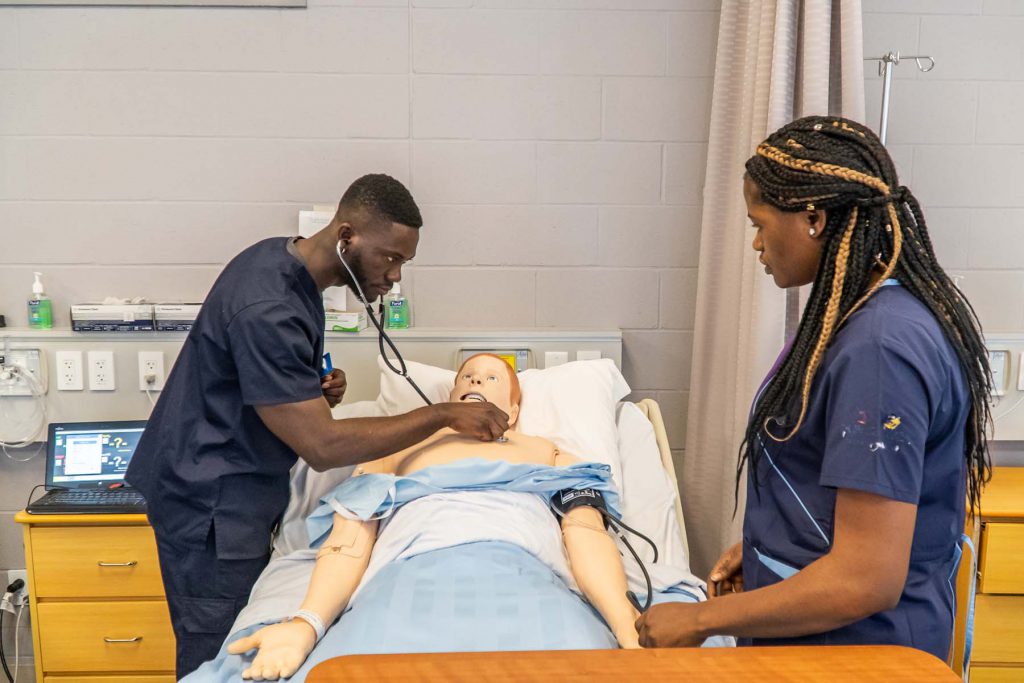
Respiratory assessment
The patient simulator is programmed with wheezing and crackling in the lungs – simulating Chronic Obstructive Pulmonary Disease (COPD).
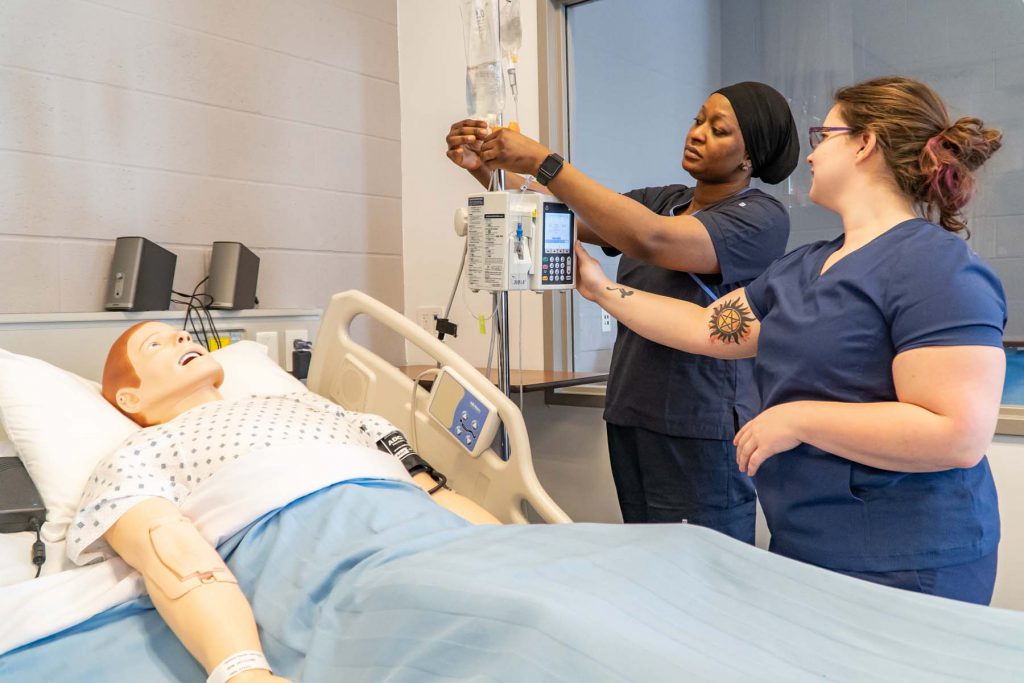
Intravenous medication administration
The patient simulator was pre-programmed to simulate pneumonia with appropriate vital signs and lung sounds. Students are required to assess the patient and then administer the appropriate medication. In this scenario, students administer intravenous fluids and medications using a Plum-A medication pump.
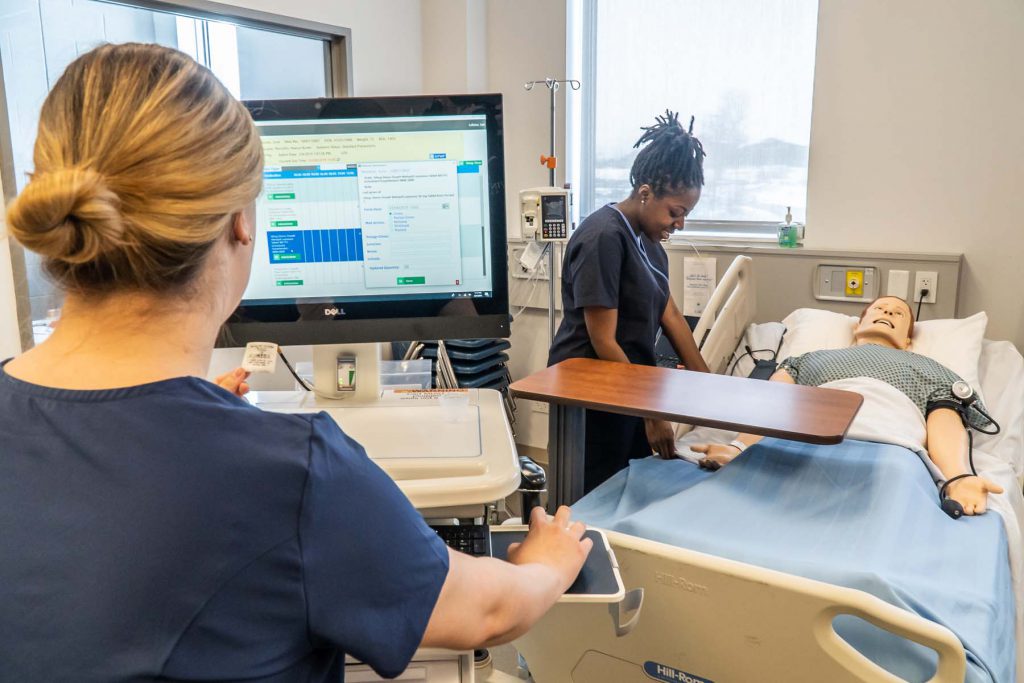
Medication administration
Students practice with advanced technology including fully automated medication carts that include electronic patient records.
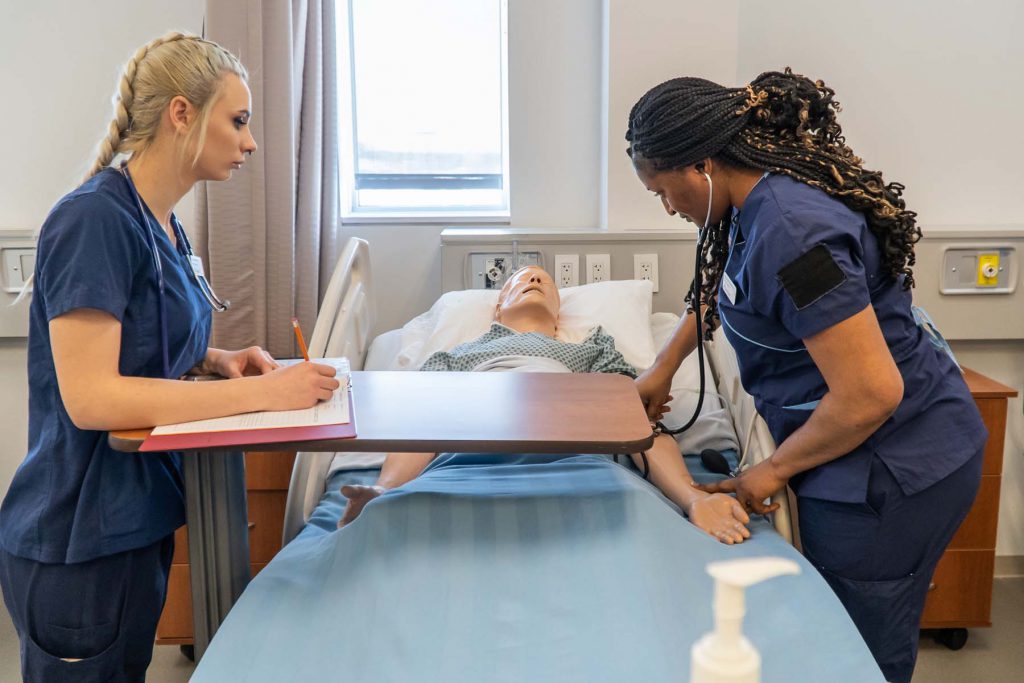
Vital sign assessment
All the vital signs in the 11 patient simulators can reproduce a variety of medical conditions. Students assess vital signs including temperature, pulse, respiration, blood pressure, and oxygen saturation.
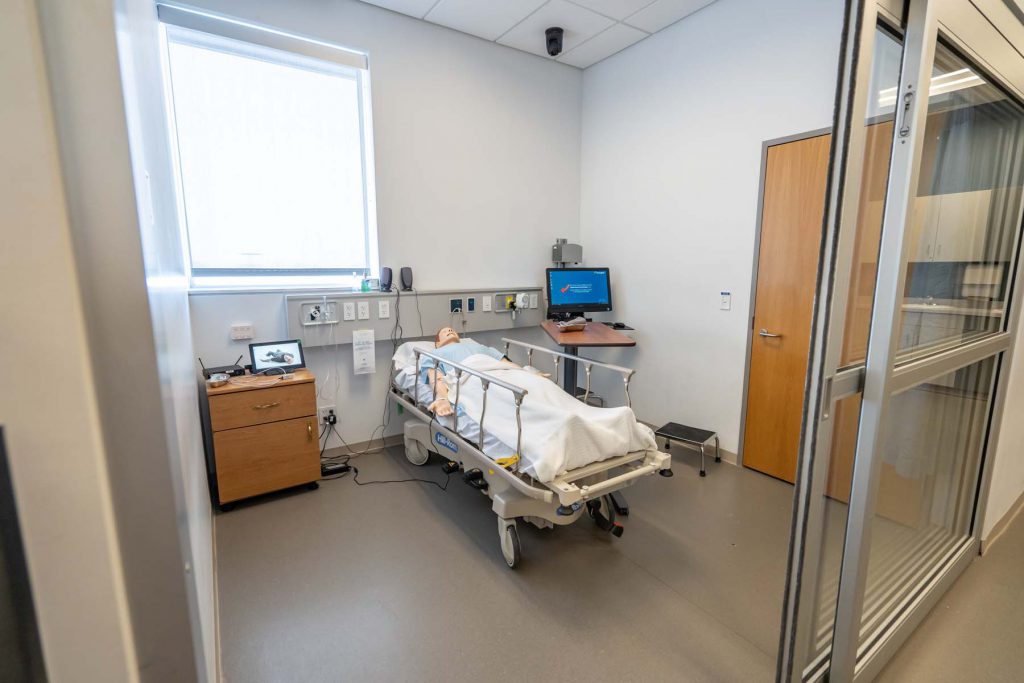
Private patient room
The high fidelity simulator gives students the opportunity to practice simulated patient experiences. Any situation they would encounter in hospitals can be simulated. Here are some example situations: myo cardial infarction (heart attack), exacerbation of COPD (severe difficulty breathing), post-operative pain, hypoglycemic event (low blood sugar in a diabetic patient).
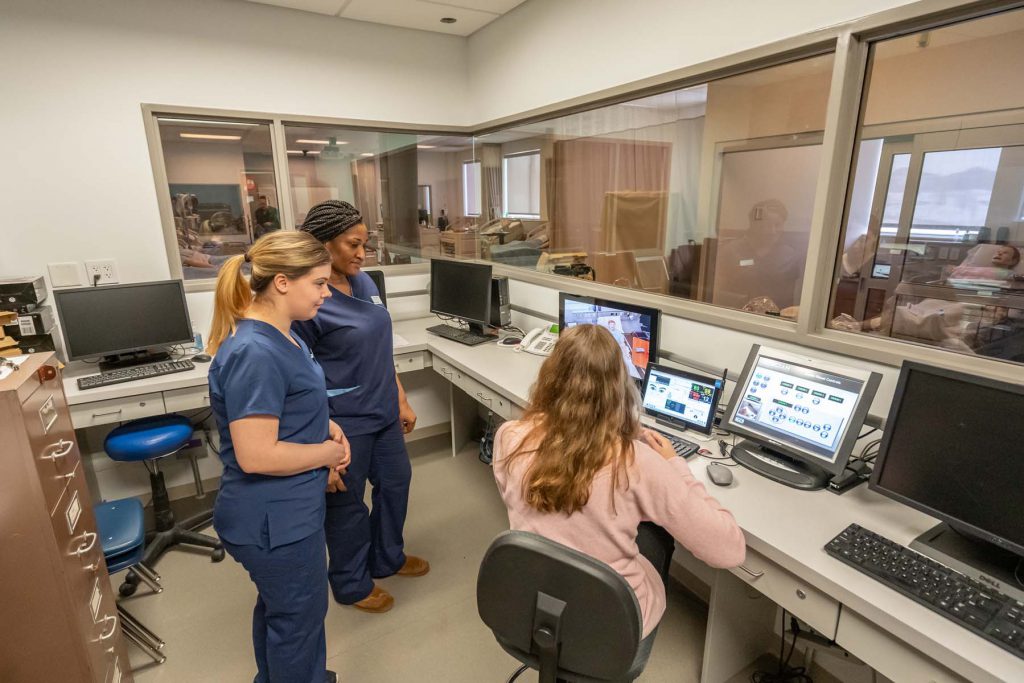
Simulation control room
The patient in the private room can be controlled and managed from the control room, and the scenario can be video recorded to assist in student learning.
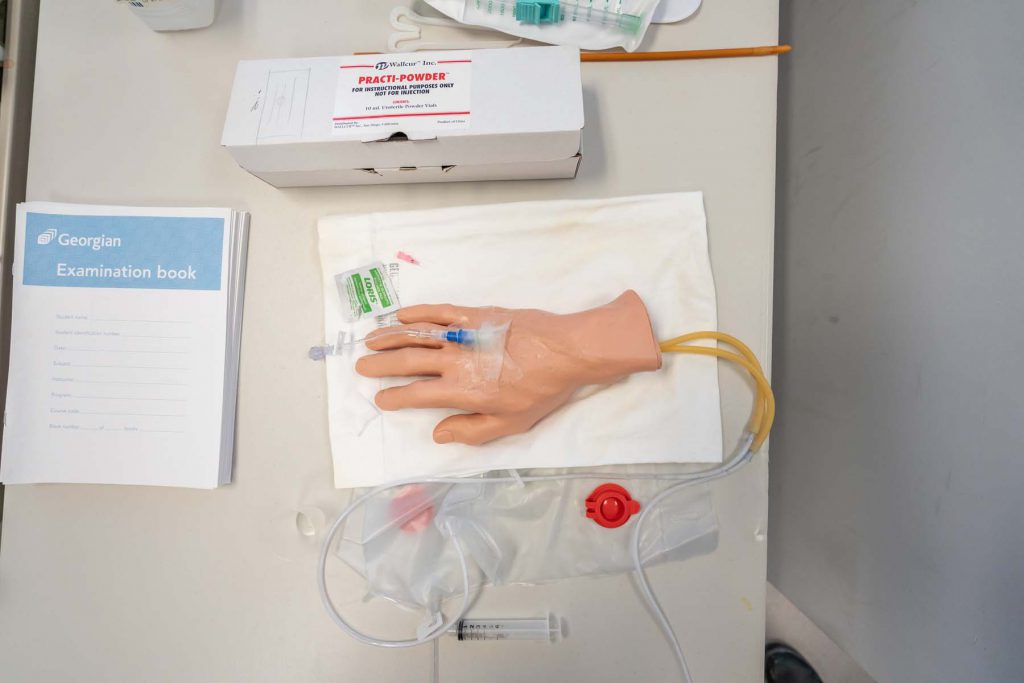
Simulated hand
Students use the simulated hand to assess the integrity of the saline lock, practice flushing it, and administer medications.
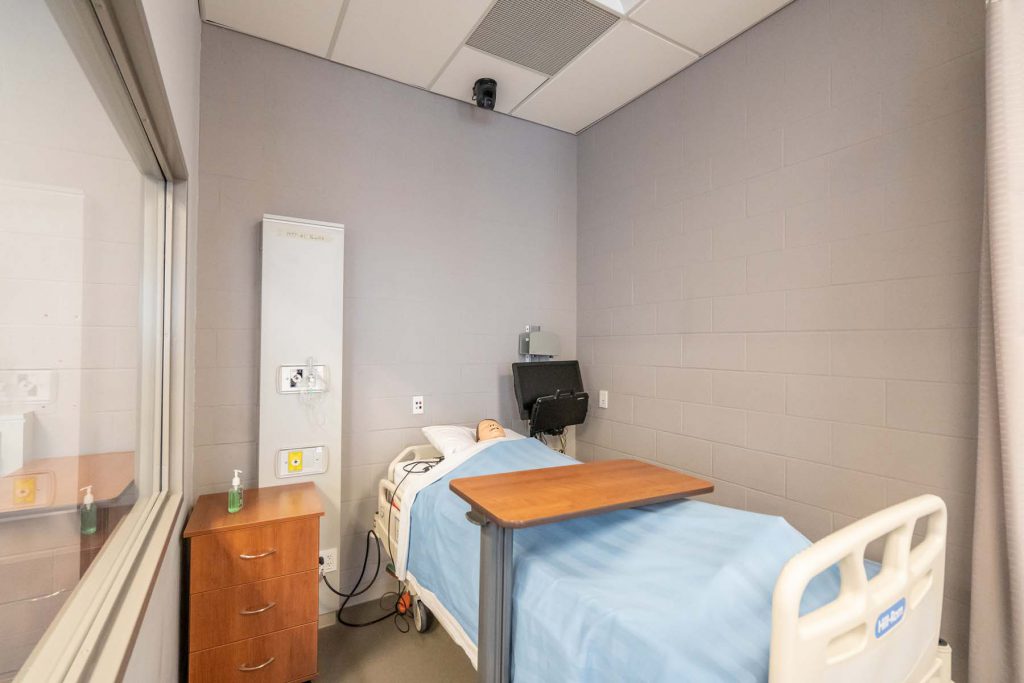
Sound trainers
Patients have abnormal heart, lung or bowel sounds related to their medical issues. The sound trainers play various sounds for students to listen and identify.
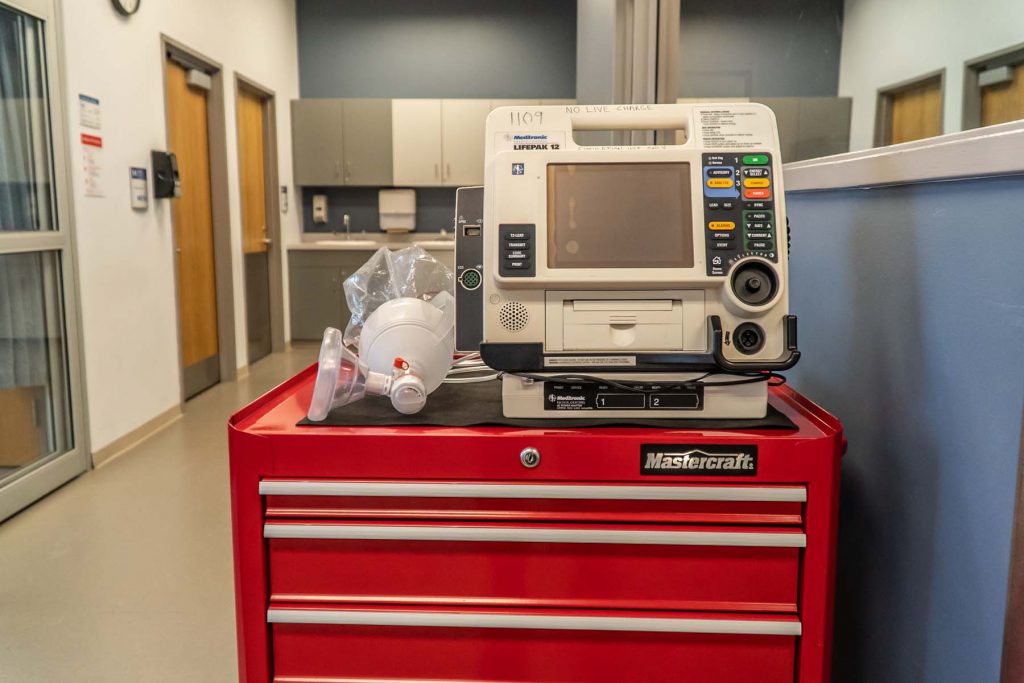
Simulated crash cart
This equipment is used for cardiac arrest situations.
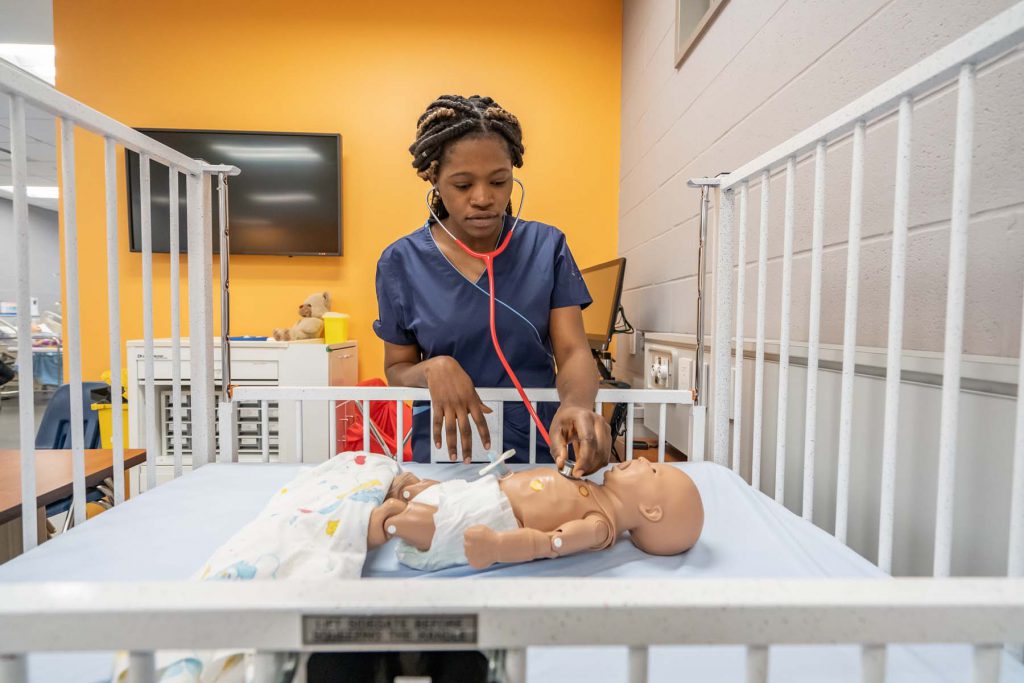
Maternal, child, and pediatric simulation labs
A wide variety of maternal-child scenarios can be set up to aid in student learning. Patient simulators include newborns, babies, pediatric, and adult females that deliver neonates.